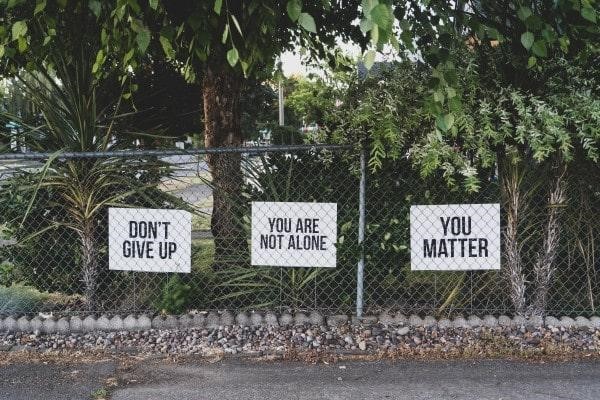Mentally Unsupportive Family? Here’s What To Do

“Bond is stronger than blood. The family grows stronger by the bond.” – Itohan Eghide
But what happens when that bond starts to wither? Humans, by nature, are social creatures and they thrive on social support. But what about when that said support fails to hold you upright?
The most important thing to us is, undoubtedly, support from our trusted and loved ones. Home is our “safe place” or “happy place” where we are free of judgment and where we are supposed to share our experiences – good and bad. But there are times when that love and support is not there when we need it the most.
When a person is going through a difficult time – whether it be depression, loss of a loved one, grief, or just a bad day – they are more likely to look for support at home, surrounded by their family and friends.
Also Read: Communication And Mental Health: Why Is It The Key To Mental Wellness
Having and maintaining a strong and healthy support system is as important to us as breathing. But what happens when that support system stops being reliable. What to do when the people who are supposed to understand you stop being understanding?
It is said that if you are with an ailment, time spent with your loved ones will cure whatever illness you have. After all, the most powerful medicine in the world is love, right? Especially in the times of a pandemic, we all need some support and love from people we trust and love.
It can be frustrating and difficult to not find a shoulder to lean on when you need it the most. But don’t fret,
Here Are some things you need to remember if you have a mentally unsupportive family.
1. Not Everyone Understands
Some people are not very understanding or not very vocal about their issues. Their not understanding a problem has nothing to do with you and your condition. People have been, for a long time, relying on myths rather than facts about mental health conditions.
In many societies and cultures around the world, talking openly about mental health is “frowned upon”. There are stigmas surrounding mental health that prevents many people from being open to understanding such conditions.
Your loved one’s behavior towards you could stem from just that. Sometimes, though, we need to educate people to understand this issue but not all people are sensitive to issues pertaining to mental health.

Organizations such as NAMI and Vandrevala Foundation are an excellent source to help educate others about the stigma surrounding mental health.
Also Read: Modern Dating and Relationship Issues: Therapy for Relationships
2. You Deserve Care
The best support system you can ever have is – YOU. You are your greatest cheerleader and supporter, no matter what. Be kind and gentle to yourself. Self-talking is a tool you can use to keep yourself positive and hopeful. Listen to yourself and take care of yourself first. You deserve that if no one else gives you that.
Ruminating thoughts, especially when you are depressed only fuel your condition. Turn those thoughts around and repeat positive affirmations throughout the day when you start to think negatively. Do something nice for yourself. Practice self-care. Don’t neglect yourself even if others are.
3. Don’t Believe In The Myths
There are thousands of myths and misconceptions regarding depression and other mental health conditions. Do not believe in those. Depression is not just sadness or “in your head”. It is a real and serious condition that causes an imbalance in your mind.
You are NOT an attention-seeking person and if someone says that you, remember the facts, not the myths. It takes a lot of courage and strength to ask for help and even if you don’t find support in that area, don’t worry. There are lots of online resources available to help you with your condition.
4. Others Might Need Help Too
If someone you love is unwilling to support you doesn’t mean that they are also not struggling with the same issue. Maybe they want to help you but are unable to because of their own need for help.
You need to keep this in mind the next time you come across such situations. Don’t take their unsupportiveness personally. Understand that they might be going through the same and might need help too.
It’s not that they don’t care about you, it’s just that they might not have the resources to help you.

5. Keep Looking For Support
When your family and friends are not able to support you with your problem, keep looking for other avenues. There are online support groups for people with anxiety, depression, and other mental health conditions. Look there but keep looking.
Support groups are a great way to find support as they are shared by like-minded people with similar experiences. In any case, talking to someone who’s been through the same can be beneficial and can make you feel less alone.
Don’t hesitate to seek help from outside of your comfort zone. Sometimes talking to a stranger with similar experiences can be more helpful and easier.
Also Read: 10 Relationship Hacks Unfurled By Couples Therapists
6. Be Direct
Many times a friend or a family member is willing to help you but they don’t know how to. Be direct and ask for the help you need. Maybe they don’t know how to help you when they don’t know what you are going through or what you need, exactly.
People are not mind-readers. You need to be direct and straight-forward to ask for what you need.
7. Say Bye To Toxic People
Some people are just negative whether it be their aura, thinking, or actions. These people are always looking for ways to demean you no matter what you do. Remove that kind of toxicity from your life and say bye to these negative people. If you are unable to cut them out entirely, start by limiting your contact with them.
If these people are unwilling to listen to you or help you, they don’t need to be in your life to spread more negativity. It’s about your mental well-being after all and negative people are not good for your mental health.

8. Righteous Anger Is Good
When we are not able to find support in our loved ones, it can become frustrating. This can lead you to develop feelings and emotions such as disappointment and anger.
Letting go of these emotions and channeling them into doing something productive and positive can be beneficial. Go out for a jog, break a plate (in a safe place), or clean your room. Find an outlet to help you release such emotions.

On A Personal Note
Not getting enough support from your relationships can hurt – a lot. This lack of support can make you feel alone and hopeless. But you need to remember that you are NOT alone. There are online support groups and therapies available and willing to help you.
If that doesn’t help, don’t hesitate to reach out to a professional mental health advisor.
You are enough! You are strong! You are not alone!





















Having someone by our side matter, if you don't have one don't worry be your own support